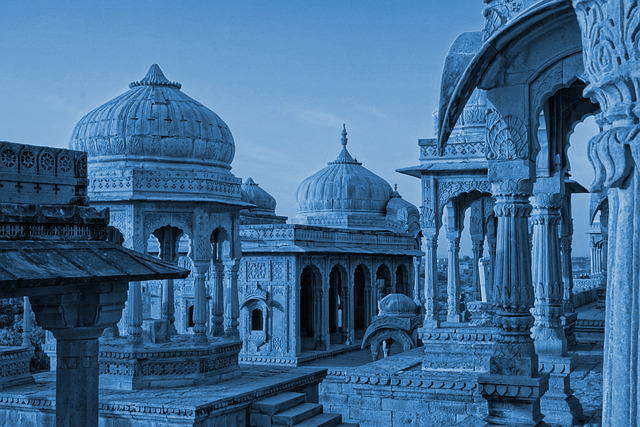Gandhi is a good example of a failed assimilation. A rather mediocre student as a child, he undertook the ambitious project of going to England to become a lawyer for her Majesty. After three years of study, he achieved his goal and for him, full integration into the British elite was a matter of course. What a shock it was for him when he discovered, once landed in South Africa, that he was just another “colored”. His desperate efforts to integrate into colonial society were in vain, and he understood at that moment that he would remain a second-class individual all his life. There was no point in trying to follow unfair rules that would never give him the right role. Now he understood that the subjects of the Empire could never flourish under such conditions. The divorce was consummated. Independence would have to come within a few decades, but it was a point of no return.
Gandhi Or The Empire Counter-Attack
By denying access to the social elite to its non-British subjects, the colonial system shot itself in the foot. You can’t keep a system in place if you can’t maintain a glimmer of hope and a belief in the justice of the system. Inequity will cause the system to collapse from within because people will no longer want to collaborate.
Passive Resistance Or Non-Collaboration
A system relies on the goodwill of its members. If they refuse to participate in the rules you set up, the whole system is called into question. Gandhi had only to tap into the resentment of millions of hearts that had been fostered by the unjust system of the East India Company to get his movement going. Repeated humiliations can make you indolent and submissive without allowing you to rise up. However, if you see around you that there are courageous people ready to stand up to the oppressor, then you rise up and are ready to face the oppressor with all your heart.
The Heart Is The Seat Of All Revolutions
A man with courage is a majority.
A rebellion is a movement in which thousands of hearts are animated towards the same cause. Someone who suffers humiliation extinguishes his heart in a way. Nevertheless, he has a reserve of oil in him that can catch fire at any moment. Gandhi was in a way the spark that set fire to thousands of hearts that were waiting for it.
A mass of men and women determined to achieve a single goal can defeat all oppressors, no matter how armed to the teeth they are.
The Real Catalyst For India’s Independence: World War II
In fact, the British could have continued for decades or even centuries to exploit the Indian subcontinent, but nothing would have really changed if a coercive force had not stood in their way. Just as Napoleon contributed to the emancipation of the Spanish territories in Latin America, Hitler accelerated the process of independence. Gandhi was especially in the right place at the right time to carry out his project.
The Colonial Empires Broke Up After The War
Whether they were French, English or Dutch, the European empires did not stand the test of the Second World War. This conflict revealed the weaknesses of the powers of the time, giving courage to all the subjugated peoples to demand their independence.
If Justice Reigned In The Colonies, The Outcome Could Have Been Different
If the colonial powers had managed to maintain a sense of justice, it is likely that the colonized would have wanted to continue their integration into the empire. The problem is that empire often rhymes with control, which is why it is often illusory to think that being colonized is an opportunity.
What Lessons Have Been Learned?
– A regime based on force will sooner or later collapse
– Every individual aspires to the respect of his dignity and his conscience
– History tends to repeat itself but most people refuse to study it
– It is in times of difficulty that you will know if your system is based on justice
– Egalitarian rhetoric can never replace concrete actions that illustrate equality
– Violence cannot create stability, it creates an unstable system that can falter at any moment








